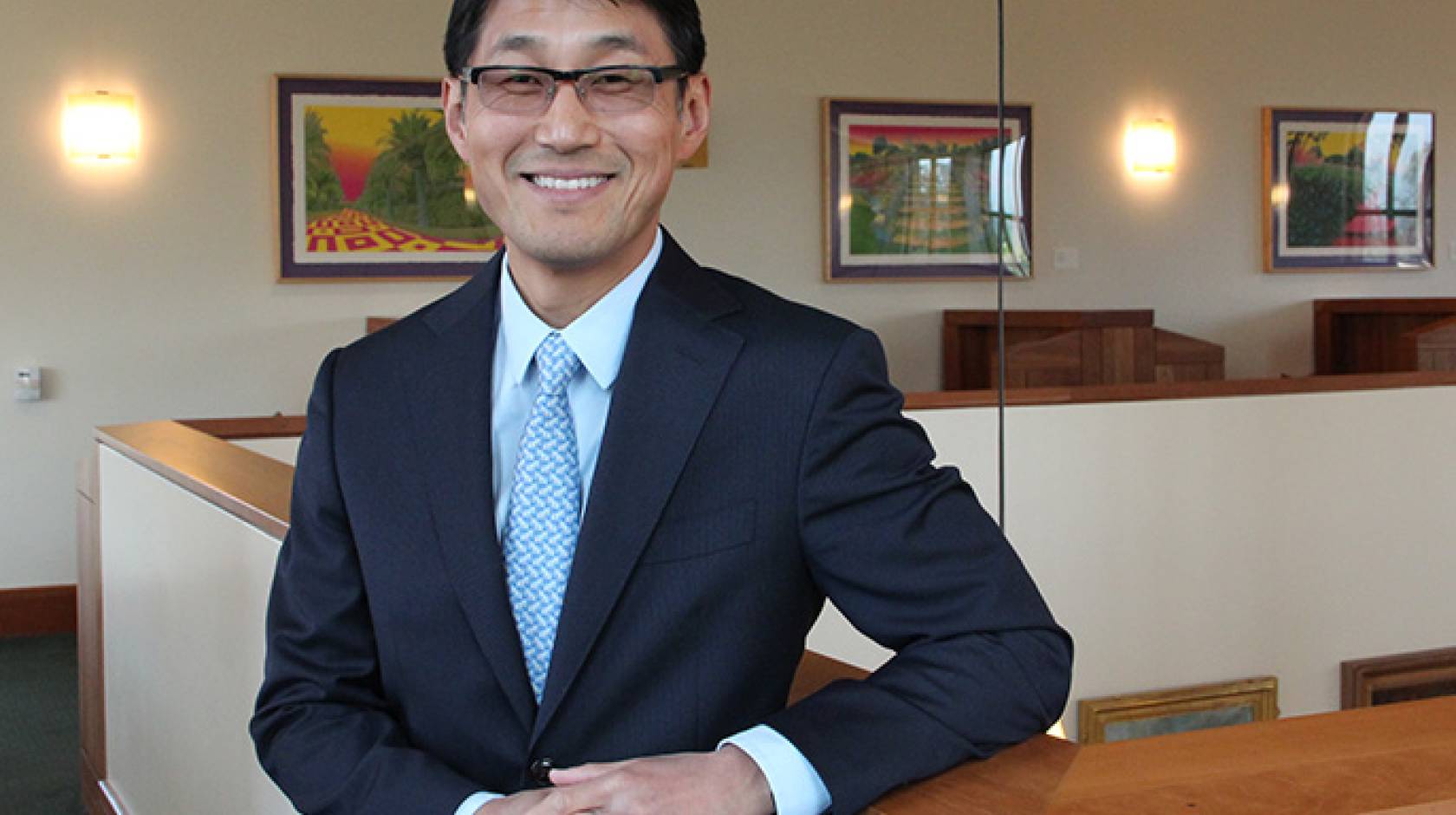Phil Hampton, UCLA

UCLA professor Jerry Kang, an influential scholar who has written extensively about implicit bias and the law, hate crimes, affirmative action and other topics, has been named the campus’s first vice chancellor for equity, diversity and inclusion.
Kang, a professor of law and of Asian American studies, will serve as the senior UCLA official responsible for promoting equity and fundamental fairness and coordinating campuswide efforts to foster a welcoming environment, campus leaders said.
“Ensuring that UCLA’s actions and policies align with our values is essential, and it impacts every unit on campus,” Chancellor Gene Block said. “Through years of scholarship and service to UCLA and the community, Professor Kang has shown that he possesses the authoritative voice, compassionate leadership and steadfast commitment required for effectiveness in this critical new position.”
In an email announcement to all students, faculty and staff, Executive Vice Chancellor and Provost Scott Waugh said Kang “will engage with multiple audiences on topics fraught with intellectual and emotional challenges, [and] we will benefit from his demonstrated talent for communicating clearly, with rigor and empathy.”
Drawing upon broad base of expertise
Kang said he aims to tap the expertise of faculty from multiple academic disciplines — social psychology, neuroscience, humanities and ethnic studies, among others — to develop evidence-based enhancements to policies and practices.
“My vision is to rebrand questions of equity, diversity and inclusion as less about political orthodoxy and more about grand intellectual challenges,” Kang said. “I want to leverage the smarts that we already have at UCLA among faculty and students to examine how to make this a more fundamentally fair place.”
Kang’s appointment, effective July 1, follows an extensive national search. A search committee composed of faculty, staff and student leaders identified and evaluated candidates, recommending finalists to Block and Waugh. Kang and other finalists participated in meetings and public forums with the campus community, and search committee members were invited to provide feedback to Block and Waugh.
Faculty praises
The appointment drew praise from faculty involved in the search and active in campus climate and diversity issues.
“The care, creativity, sophistication and dedication with which Jerry Kang approaches diversity and social inclusion will strengthen UCLA’s long-standing commitment to excellence, equity and access,” said Devon Carbado, the Honorable Harry Pregerson Professor of Law. “His capacity to work across differences and to build and sustain meaningful relationships with multiple constituencies makes him the ideal person to unite UCLA — students, staff, faculty, alumni and friends of the university — in its ongoing mission to produce a culture of openness and inclusion.”
M. Belinda Tucker, vice provost of the Institute of American Cultures, emphasized that the position requires “convincing the entire campus of the essential nature of this work, while working hard to repair problematic structures, procedures and practices; addressing complaints; and making certain that every single person on our campus learns to treat others with dignity and respect.”
Tucker, a professor of psychiatry and biobehavioral sciences, said, “Jerry’s passion, impeccable academic credentials, leadership skills, demonstrated knowledge of the issues and compelling vision portend a very successful tenure.”
Cheryl Harris, professor of law and the Rosalinde and Arthur Gilbert Foundation Chair in Civil Rights and Civil Liberties, said Kang’s “commitment to equity and fairness is as deep and significant as is his intellectual contribution to the study of bias and its persistence, even — and often — despite our awareness.”
“He is fearless in his pursuit of knowledge and will bring that same passion to this most difficult and most necessary work,” said Harris, who also is interim chair of the department of African American studies.
The new position’s broad areas of focus include strategic planning, evidence-based policy analysis and development, training and compliance, and community relations, among other areas.
Kang will shape and oversee the Office of Equity, Diversity and Inclusion, which includes two discrimination-prevention officers, a Title IX officer and the Office of Faculty Diversity and Development; and he will convene key campus officials to ensure the coordination of diversity efforts and the achievement of institutional goals.
Commitment solidified
The new position, reflecting the campus’s commitment to equity and inclusion, was created following a review examining incidents of bias and discrimination experienced by faculty. The independent review panel, commissioned by Block and Waugh, was chaired by retired state Supreme Court Justice Carlos Moreno.
Kang joined the UCLA School of Law faculty in 1995. He also is a professor of Asian American studies and associate provost and the inaugural holder of the Korea Times–Hankook Ilbo Endowed Chair in Korean American Studies and Law. He is a leading scholar on implicit bias and the law, with more than 40 articles published on that subject and other topics in leading journals, and citations in numerous judicial opinions.
The law school’s class of 1998 elected Kang professor of the year in 1998. He also received the law school’s Rutter Award for Excellence in Teaching in 2007 and UCLA’s Eby Award for the Art of Teaching in 2010.
Off campus, Kang has sought to translate scholarly work into practical problem-solving, contributing to various community and research-based advocacy efforts such as the American Bar Foundation’s research group on legal diversity, the Poverty and Race Research Action Council’s social science advisory board and the Council of Korean Americans. He also regularly trains law firms, judges and corporations on the problems of implicit bias.
An immigrant from South Korea, Kang earned a bachelor’s degree in physics and a law degree, both magna cum laude, from Harvard. Before entering academia, he clerked for the Ninth Circuit Court of Appeals and later worked on telecommunications policy for the U.S. Department of Commerce.

